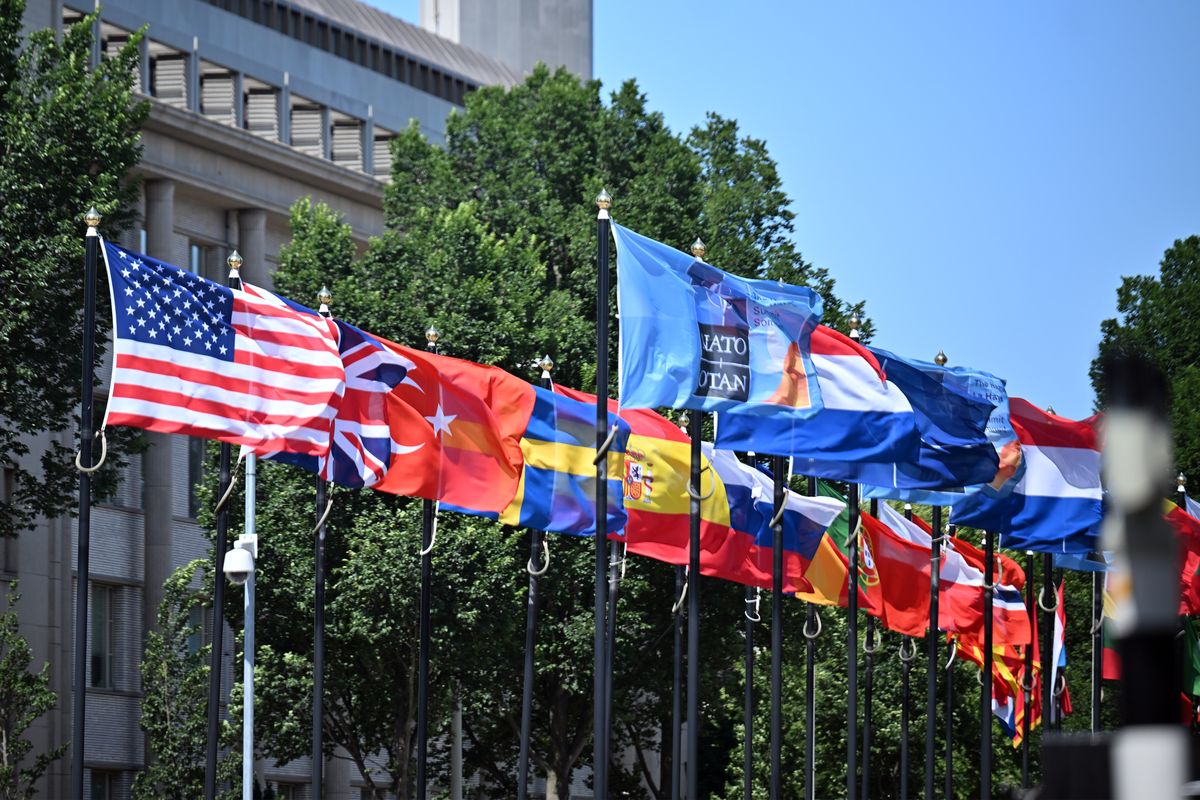Black Sea security has become a top NATO concern since Russia’s incursion in eastern Ukraine and annexation of Crimea. A lot of Russia’s ships and aircraft being used in Syria come out of the Black Sea, Magnus Nordenman, a director of the Transatlantic Security Initiative with the Brent Scowcroft Center on International Security at the Atlantic Council, tells The Cipher Brief. For these and other reasons, NATO members have agreed to enhance defense in Romania and Bulgaria. The Cipher Brief’s Kaitlin Lavinder spoke with Nordenman about what bolstering defense there really means and why the U.S. is involved.
The Cipher Brief: At the NATO Warsaw Summit last year, NATO members decided to bolster defense in Romania and Bulgaria with a tailored forward presence. What does that mean exactly?
Magnus Nordenman: What that means is that NATO is going to start working on command and control arrangements for doing operations in that region and that there will also be people on the ground to provide staff elements, to accept reinforcements and coordinate exercises, and so forth. And then there is also another element of this, which is increased NATO exercises in Romania and Bulgaria.
TCB: Why was that decision made to enhance presence there?
MN: Because the broader Black Sea region is one of the friction zones between Russia and NATO, together with the Baltic Sea region. Those are two of the key pressure points between NATO and an assertive Russia.
TCB: Can you explain that a little further? Why exactly is the Black Sea region a pressure point?
MN: A couple of different reasons. One, Ukraine is there. Obviously, this new era of tension between NATO and Russia was triggered by the fact that Russia invaded eastern Ukraine and annexed Crimea. And Russia has a heavy military presence in the broader region.
Along with the big, major events of this new era, it is also one of these places where you see a lot of close encounters between NATO and U.S. forces and Russia, and where Russia is exercising and operating. So for example, the flyover incident with USS Donald Cook, where Russia jets flew at extremely low altitude over the US. destroyer, happened in the Black Sea.
Also, a lot of the Russian ships and aircraft that are being used in Syria come out of the Black Sea.
TCB: If there was to be an incursion from Russia in the coming years, would the region be prepared with this NATO reinforcement, or is this more of a deterrence mechanism?
MN: For right now, it’s a deterrent. But I would say it’s the first step, and obviously more needs to be done in terms of new capabilities, in terms of more exercises, in terms of command and control. So this should really be understood as a first step and a political deterrence, if you will.
TCB: Can you go into a little more detail about the command and control structure there?
MN: So right now, there’s not much. That’s something that’s being built up. So, in essence, there’s not much to discuss just yet. It is being developed as we speak.
TCB: How exactly is the U.S. involved in these deployments?
MN: The U.S. is involved in a number of different ways. One, the U.S. Army is participating in a number of ground exercises in the region. Toward the end of this summer, there will be an especially heavy period of U.S. Army exercising around the Black Sea region.
The U.S. Navy is present in the Black Sea and is doing patrols and so forth. And the U.S. is also doing reconnaissance flights over the Black Sea.
I would also add one more, which is sort of an interesting example. The Romanian Air Force, together with the U.S. Air Force, just did its first in-air refueling exercise over Romania. That’s obviously one example of building capabilities, so Romanian F-16s will be able to do in-air refueling. That’s a very tangible example of what the U.S. is doing with Romania currently.
TCB: You outlined the broader reasons as to why Black Sea security is so important, but are there any other specific U.S. interests that explain why the U.S. is involved?
MN: Another one is energy security. There’s a lot of energy flows through that region.
But if you zoom out for a second, obviously the region is part of a broader European region, and there the U.S. has an interest in continued European stability and not going back to a world order where war is a thing of the future in Europe. I wouldn’t look at the Black Sea region with Romania and Bulgaria in separation from Europe. I would look at it as part of a whole European continent. And there the U.S. has long-standing security commitments and long-standing interest in peace and stability in Europe.
TCB: Beyond Black Sea security and beyond Russia and even beyond energy, what are other defense priorities right now for Bulgaria and Romania?
MN: I think there’s been a real swing back to high-end defense. If you go back a couple years, when it came to security around the Black Sea, there was a lot of talk about energy flows and illicit smuggling, and organized crime and all of these sort of soft security issues. But in 2014, there was a hard swing back to a focus on hard security issues and the potential for war fighting. So I think that really is front and center.
TCB: Does cyber play into this at all? Are Bulgaria and Romania concerned about, for example, Russian cyber operations within their countries?
MN: The caveat is I’m not a cyber guy, it’s not my area of expertise. But at first blush, I would assume that they are just as concerned as everyone else.













